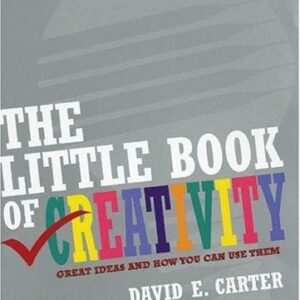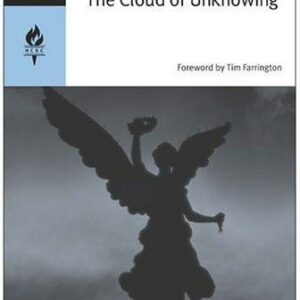Counterweight
$24.00
| Title | Range | Discount |
|---|---|---|
| Trade Discount | 5 + | 25% |
- Description
- Additional information
Description
A WIRED “BOOK YOU NEED TO READ” • For fans of the worlds of Philip K. Dick, Squid Game, and Severance: An absorbing tale of corporate intrigue, political unrest, unsolved mysteries, and the havoc wreaked by one company’s monomaniacal endeavor to build the world’s first space elevator
An “antic, madcap noir with flair” (Wired) and “fast-paced cyberpunk story” (The New York Times Book Review) from one of South Korea’s most revered science fiction writers, whose identity remains unknown.
***
On the fictional island of Patusan—and much to the ire of the Patusan natives—the Korean conglomerate LK is constructing an elevator into Earth’s orbit, gradually turning this one-time tropical resort town into a teeming travel hub: a gateway to and from our planet. Up in space, holding the elevator’s “spider cable” taut, is a mass of space junk known as the counterweight. And stashed within that junk is a trove of crucial data: a memory fragment left by LK’s former CEO, the control of which will determine the company’s—and humanity’s—future.
Racing up the elevator to retrieve the data is a host of rival forces: Mac, the novel’s narrator and LK’s chief of External Affairs, increasingly disillusioned with his employer; the everyman Choi Gangwu, unwittingly at the center of Mac’s investigations; the former CEO’s brilliant niece and power-hungry son; and Rex Tamaki, a violent officer in LK’s Security Division. They’re all caught in a labyrinth of fake identities, neuro-implants called Worms, and old political grievances held by the Patusan Liberation Front, the army of island natives determined to protect Patusan’s sovereignty.
Originally conceived by Djuna as a low-budget science fiction film, with literary references as wide-ranging as Joseph Conrad and the Marquis de Sade, Counterweight is part cyberpunk, part hard-boiled detective fiction, and part parable of South Korea’s neocolonial ambition and its rippling effects.**The New York Times “12 New Books Coming in July”**
**Wired “The 7 Books You Need to Read This Spring and Summer”**
**Nylon “July 2023’s Must-Read Book Releases”**
**Rolling Stone “Best New Book Releases, July 2023″**
“An efficient, fast-paced cyberpunk story . . . The novel’s speculations about human agency resonate in the current moment, when American tech C.E.O.s oscillate between issuing sonorous warnings about the existential risks of the A.I. systems they’re developing and breathless hype about brain-computer interfaces. The book imagines the imminent emergence of companies run by artificial intelligence—companies as intelligence, a fusion of technology and economic logic that will definitively outrun humanity.” —Hari Kunzru, The New York Times Book Review
“[A] dizzyingly subversive cyberpunk thriller . . . In true Philip K. Dick style, Djuna serves up enough paranoia and clever ideas to keep you guessing.” —Charlie Jane Anders, The Washington Post
“A sort of anti-colonial eco-noir set in a rapacious Korean corporation—which is to say, the global economy . . . The novel excels at descriptions of how capital swallows and spits up the natural world . . . Though superficially otherworldly, the villains who populate Counterweight feel familiar. LK could be Amazon or Tesla, Apple or Google—or, more to the point, one of many hereditary chaebols in South Korea.” —E. Tammy Kim, The Nation
“Zippy, cinematic . . . An antic, madcap noir with flair.” —Kate Knibbs, Wired (“The 7 Books You Need to Read This Spring and Summer”)
“Think of the novel as the cosmic lovechild of Hackers, The Matrix, and pretty much anything by H.P. Lovecraft, kinda.” —Rolling Stone (Best New Book Releases, July 2023)
“A tremendously propulsive thrill ride that would be at home on shelves beside such heavyweights as Doctorow, Stephenson, and Dick . . . Hur’s translation is zippy and often quite funny as the cinematic plot unfolds, packing in both twisty cyberespionage and deep questions about legacies, AI, and the price worth paying to do something truly great. English-speaking readers have been missing out.” —Publishers Weekly (starred review)
“Read[s] like classic dystopian fiction . . . The first novel to be translated to English from South Korean author Djuna (whose identity remains a mystery), this quick-moving puzzle of an SF story is intriguing and fascinating as it imagines a future where humanity is intertwined with AI.” —Melissa DeWild, Library Journal
“Fast-paced and exhilarating, Counterweight is worth the ride . . . Packs more corporate intrigue into its 176 pages than most stories manage in three times the space . . . Forget about blinking while reading this book.” —Andrea M. Pawley, Washington Independent Review of Books
“In agile, straightforward prose, Djuna weaves a tale that unfurls as vividly as a film. Literary references and bits of humor are sprinkled throughout the whole book, an unexpected and welcome feature. It has the effect of drawing the next chapter in and conducting the reader’s gaze beyond the abyss that forms whenever we scrutinize the evolution of very present, palpable things—artificial intelligence, privacy concerns, transnational corporations, neocolonialism.” —Heloisa Selles, Asymptote
“Counterweight is a psychological thriller that will turn all your preconceptions upside down. The action scenes read like poetry, the space elevator is astonishingly realistic, and the characters creep inside you like mind worms. Djuna’s meticulously told story eviscerates corporate politics, revealing the authoritarian perversity at the heart of technological innovation—whether the tech is inside our brains, or reaching into outer space.” —Annalee Newitz, author of The Terraformers and Autonomous
“Paranoid, wondrous, and breakneck—Counterweight is an elevator rising from the muck to the stars.” —Max Gladstone, co-author of This Is How You Lose the Time War (winner of the Hugo Award and the Nebula Award)
“Djuna’s visionary novel launches us on a search for elusive answers in a world where nobody is ever as they seem. Enthralling and category-defying, it unfolds at a thriller’s pace in its exploration of the plasticities of human identity and where technology—and our ambition—might take us.” —Pitchaya Sudbanthad, author of Bangkok Wakes to Rain
“Counterweight needs no heavy lifting. It is so sharp, cutting and suspense-packed you’ll read it in a blink. Highly recommended for everyone who loves great sci-fi.” —Marc-Uwe Kling, author of Qualityland
“Djuna is a legend and a giant in Korean science fiction. Hur is a phenomenal translator. And Counterweight has everything. It is a fast-paced science fiction action thriller, a well-crafted mystery novel, and an absolutely captivating study of the complexity of human existence (physical or otherwise). A wild ride where both the author and the translator shine. I could not put down the book.” —Bora Chung, author of Cursed Bunny (International Booker Prize finalist)
DJUNA is a novelist and film critic, and a former chair of the Korean Science Fiction Writers Union. For more than twenty years they have published as a faceless writer, refusing to reveal personal details regarding age, gender, or legal name. Widely considered to be one of South Korea’s most important science fiction writers, Djuna has published ten short-story collections and five novels.
ANTON HUR was double-long-listed for the 2022 International Booker Prize and short-listed for his translation of Cursed Bunny by Bora Chung. He has also won PEN translation grants transatlantically and has taught at various institutions in both South Korea and abroad, including the National Centre for Writing in the U.K. He lives in Seoul.HUMMINGBIRD ATTACK
Clink. Clink. Clink. A nickel and a quarter are dancing on Rex Tamaki’s left hand.
Controlled by tiny movements of the index and little fingers, these thin metal discs fly up, spin, roll, and leapfrog over each other like they’re living beings with free will.
The dance of the coins ends as abruptly as it started. Realizing he was distracting me, Tamaki snatches the coins from the air and drops them into his pocket, throwing me a smirk. A provocative and seductive smirk. Tamaki isn’t gay, he just enjoys pushing buttons and stringing people along. Miffed, I look away.
The interior of the plane is quiet. The only thing I hear through my nonaugmented ears is the low drone of the engines. This apparent silence is deceptive; judging from the continuous smirking of Tamaki’s personnel, I can tell they’re sending silent messages to each other. They did open a channel for me, too, but since I entered the cabin not one person has engaged me in conversation. Not that I care. They can keep their stupid jokes.
Rex Tamaki, contrasting with his gorilla-like colleagues with their muscles bursting out of their shirts, looks almost slight. But you can’t trust looks these days. No one’s strength is in proportion to their muscles anymore. Since he lost his Olympic gold medal fifteen years ago in a doping scandal, Tamaki’s body has undergone several phases of modification. The current version, now before me, is clearly the handiwork of someone who treats rules and regulations with contempt.
The alarm inside my head strikes 22:00. For the next eighteen hours, judicial power of the Gondal Quarter will transfer from Tamoé’s government to the LK Group. Don’t even ask me what I had to do flitting between islands, trying to make this happen.
Tamaki and his gang, almost synchronized, get up from their seats. I feel a kind of floating sensation as we begin to descend and the golden hatch in front of me spins open. Our Hummingbird circles over the Gondal Quarter at three hundred meters and descends like an elevator. Through the widening hatch, I can see the coastline village that looks like a scattering of plastic boxes.
As the hatch widens and the plane begins to slow down at fifteen meters, the Tamaki gang begin jumping off one by one. Despite their bulky bodies they move with such grace that their feet hardly make a sound as they land on the roofs of the buildings and disappear into the village. I remain secured in my seat, seatbelt fastened, looking on.
Hot air blows through the hatch into the interior. It smells of the village. Food, fish, excrement, trash, people.
In that mess of boxes are thousands of people breathing, eating, excreting, sleeping, vomiting, copulating, and popping out babies. My insides turn.
“Shall we have some fun, Mac?”
Tamaki’s voice. And like all voices that come over the Worm,
it’s oddly separated from ambient noise. The voice of a god, stripped of its sanctity, with only the monstrosity remaining.
An augmented-reality screen blinks on before me. Red and blue dots stud the village. The blue dots are LK’s Security operatives, the red dots are Patusans of the Liberation Front, who one month earlier had assassinated three Doran Party figures in Pala. I turn to a second window, where I have a POV of the blue dots. White foam is flung in the face of a red dot who holds up an AK-1 at the face of a blue dot. Another red dot throws a fist at a blue dot and is flung backward by one retaliatory kick. A third red dot has already bitten down on a gun and fired off half his face. A blue dot is ripping children off his body, ragamuffins who have flung themselves on him like a school of sharks.
I go back to the first window. Now there isn’t a single red dot on its own. They’re all surrounded by blue dots and, as of a few seconds ago, are moving toward a yellow dot in the village. The current time is 11:13. Tamaki had predicted the operation would be over in fifteen minutes.
Our Hummingbird, its hatch still open, moves toward the yellow dot. A small plaza in the village, just big enough for the Hummingbird to land and for people to move around the plane.
When I disembark, I ignore the men under restraint whose faces are messy with foam and who are being dragged onto the plane. I walk toward where the last red dot is at a standstill at a northern building. The children who had only a moment ago swarmed the security force agents, screaming and biting, are gazing at us expressionlessly.
The door of the house of the red dot is half open. As a colleague stands next to him, transmitting the video of the scene, Tamaki hammers a short pipe into the dead man’s skull.
“And what do you hope to gain from that?” I ask. “The dead remember a surprising number of things.”
I leave him to his harvest of memories and consider the rest of the information coming through the Worm, the data inside the captured terrorists’ memory devices being gathered and categorized. I scratch my head, irritated. Never will my body understand how this many things can be happening while there’s nothing for my hands to do.
The information I’m looking for is mostly about internal spies, moles. We don’t care about the assassination incident itself that prompted our intervention. As with most Doran Party members, dead people are largely irrelevant, more useful dead than alive. Though LK verified the identities and locations of two of the assassins within a couple of days of the incident, we never shared that information with the Pala government, and for good reason.
The list of 154 people, names obtained from today’s operation and sorted by Security HQ computers, comes up on the screen.
Of these, only about thirty are of any consequence, and LK’s External Affairs, which is my division, are interested in nine. Seven of these are midgrade officers at LK, two are Patusan municipal workers. They will all be put on a watch list and neglected. The information we’ve obtained today has the shelf life of a mere two weeks, not enough time to waste on arrests or disclosures.
I add the summarized information to the report for External Affairs and look over the remaining names and faces on the list. Mostly people who were relatives of those arrested today or various personnel they had designated as their targets. A few of them might have actual ties with the Liberation Front, but for most it’s just a matter of being accounted for.
The scrolling list pauses. A new window opens with information and photographs. Boring haircut, fairly handsome man in his late twenties. Name: Choi Gangwu. An LK Space worker, and the only Korean on the list. Why did I save this man’s information? It bothers me for a moment that I can’t remember.
Oh right. Now I do. That Korean guy who wouldn’t laser off his beard.US
Additional information
| Weight | 10.8 oz |
|---|---|
| Dimensions | 0.7300 × 5.7100 × 8.5700 in |
| Imprint | |
| Format | |
| ISBN-13 | |
| ISBN-10 | |
| Author | |
| Audience | |
| BISAC | |
| Subjects | sci fi books, FIC028140, cyberpunk, South Korea, sci-fi, southeast Asia, translation, sci fi, FIC109000, couples gifts, adventure books, action adventure, books for kindle, e book, nytimes bestsellers fiction 2023, arms race, ny times best seller, adventure challenge scratch off book, dad to be father's day gift, counterweight djuna book, counterweight, mystery, adventure, war, crime, business, resistance, english, thriller, action, suspense, Books, death, conspiracy, science fiction, novels, Space, exploration, capitalism, island, thrillers |











